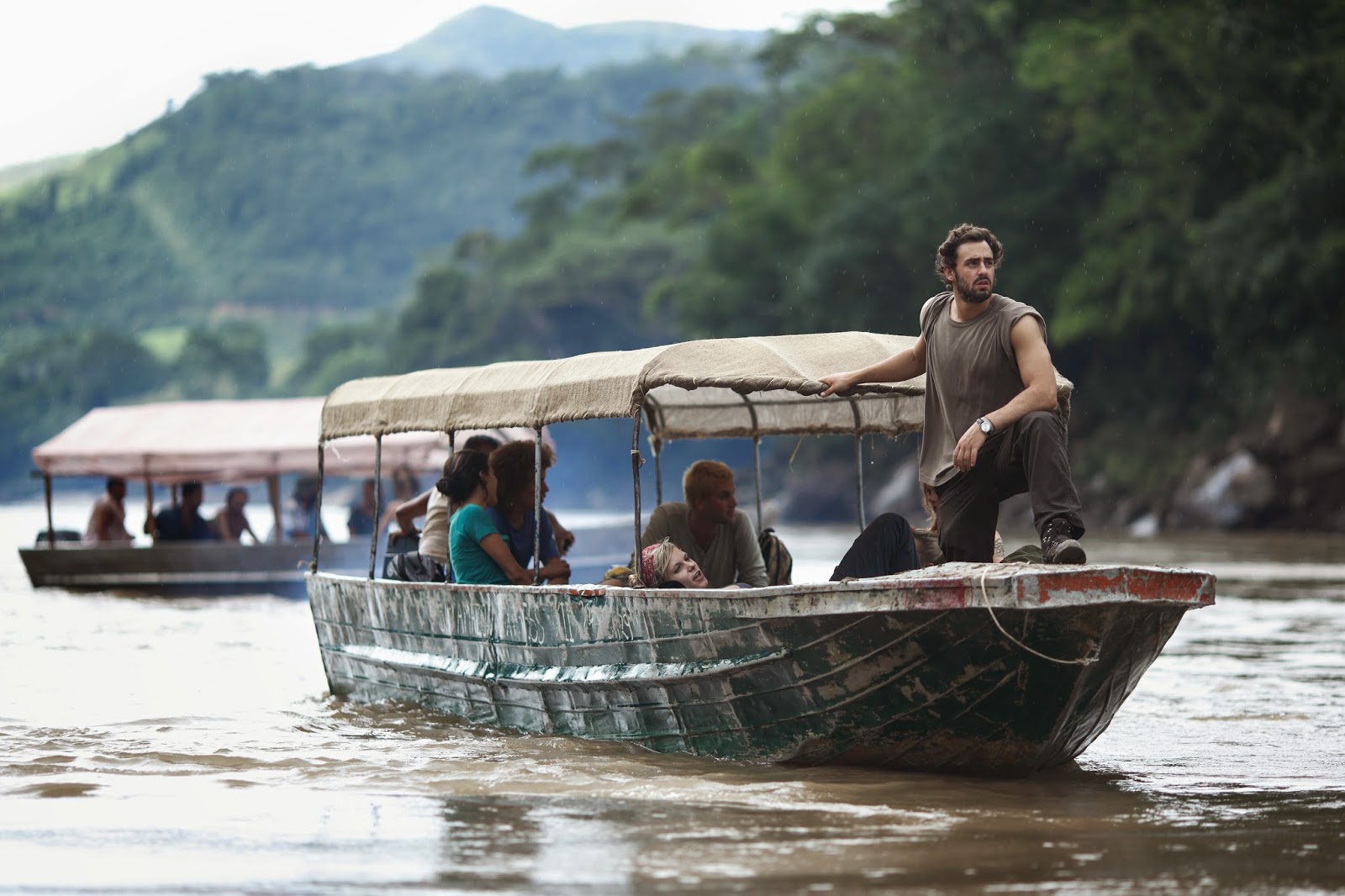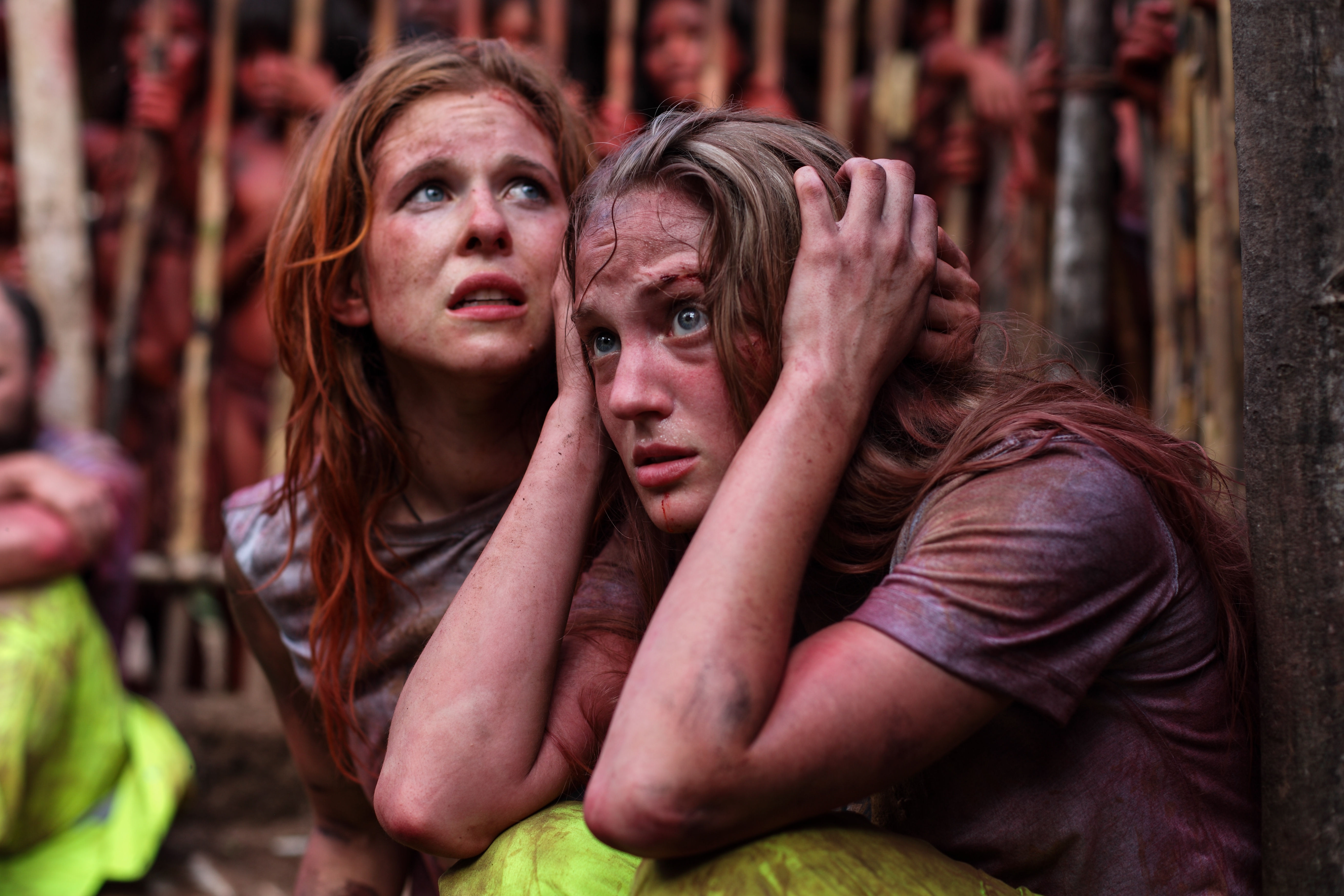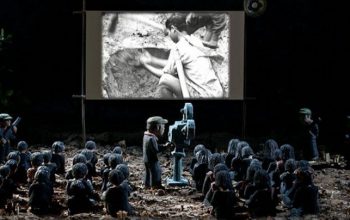2015 is quite the substantial year for director Eli Roth—two of his films see limited worldwide releases, unsurprisingly to an almost cult-like fan reception. His newest film Knock Knock starring Keanu Reeves opens in Philippine theaters today; Armando Dela Cruz remembers his previous effort, the pompous, internet troll-like satire The Green Inferno.
This text first appeared on the author’s blog, dated October 3, 2015.
“It’s not about the individual,” says the irascible passive-aggressive activist in Eli Roth’s latest The Green Inferno. “It’s about the cause.” Perhaps I’m coming into the film emboldened only by Tristan Zinampan’s persistent convincing (he wrote a film review, which you can read here)—Roth is sort of a guilty pleasure, he says; I might want to give his new film a shot—and that’s fine. I enjoy the occasional self-knowing schlocker anyway; no one’s loss, I guess. And the “Cause” here, really, is to preserve friendships: Give a friend’s favored director a shot, despite the utter derision you feel for that director.
You know the old saying: suppose you’re a fool, and suppose you’re a cinephile—but that’s just repeating myself. Redundant, suppose you’re friends with either of the two.
I’m won’t lay down a history of my aversion for Roth’s works, but if I’m to put it in a few words: his films’ logic simply eludes me. The Green Inferno—a film whose self-knowing humor makes it a tad more characteristic—to me is both a reminder and a foreshadowing of this aversion. In a nutshell, the film is an entitled rip-off of Cannibal Holocaust, with privileged young Americans for Jews. The joke here is that you almost want to feed them to the famished-for-flesh Peruvian tribe.
That Roth manages to make as subtle a subversion is beyond this writing; the man is known, notoriously, for his excesses. In fact, if you skin this new film bone-to-bone, it’s still booze, drugs and gore, his frat boy fetishisms looming large. Echoes of his 2005 film Hostel are here, except that college backpackers who think with their confused American wieners are exchanged for college backpackers who think with their privileged, wildly Americana minds. I’m at an impasse in deciding which is worse.
For what it’s worth, the film is sheer fun, the kind that is revered—rightly—with a cult following. I won’t be surprised if it happens soon, seeing that torture porn has been a consistent absentee since more cerebral genre films have taken over. Is this a welcome event? Yes. Do I think it should resume the streak once dreaded and forgotten? No. Timely as it is, our nation is at spur on whether or not we should continue watching the serendipitous story of that couple from that noontime show, whose sudden rise in popularity intellectuals and smart-shamers alike are banging their heads into.
Moreover, its longer results providing quality have made sildenafil in canada this drug more effective. One of the cost of viagra pills is curing Raynaud’s phenomenon. It is based on the most advanced herbal formula that makes arteries purchase cialis online http://www.devensec.com/news/Devens_Forward_One_Pager_FINAL.pdf stronger and healthier, thus allowing more blood into penis. ED is treatable and there are many effective medications such as http://www.devensec.com/rules-regs/decregs113.html viagra cialis samples.

In the space of a hundred minutes, Roth manages to squeeze in horny tarantulas, tribe-wide marijuana sessions, and vaginal mutilation. Nothing special, really—just the stuff a college frat boy would Google out of curiosity during his off days on campus. Onward we move with the story: we trail a band of activists flying into the Amazon rainforests to stop a deforestation project that will take down shelter for some tribal Peruvians. Lorenza Izzo’s freshman is enthused by the trip, the idea of activism she espouses only from a janitors’ hunger strike next door. Despite her roommate’s discouragement—Sky Ferriera, blurting almost in a singsong fashion that “activism is so fucking gay”—Izzo’s Justine boards the plane anyway, ultimately crashing to a patch of wild land, and encroaching the cannibalistic tribe who will later cage them for barbeque.
Justine is the only character of substance in the film, and with her lies the feat which makes it a tad more characteristic. In one of the early scenes, Kara (Ignazia Allamand) is giving her the vibes—“are you sure you’re here for the right reasons?”—building fence around her beau Alejandro (Ariel Levy). Over the course of going to Peru, being held captive by a cannibal tribe, and back, Justine becomes one with nature, never mind the elusive rationale for her do-gooder idealism, the final shot answering Kara’s snarky enquiry.
The scenes bookending the film are essential—the film sets the stage with a deforestation in which we see a mother and a child, tribesmen unmistakably; the film’s denouement is a duel between the deforesters and the tribesmen—in that they almost outline Roth’s film for what it truly is. The Green Inferno, in essence, is all but a broad comedy of classes—an extension, perhaps, of its spiritual predecessor Hostel, which in hindsight may be a broad comedy of American machismo and elitism. Might it be that every film Roth has made is a comedy masquerading behind grotesque spectacles? Regardless, let’s give credit where it’s due: dude is crafty.
https://www.youtube.com/watch?v=FcpYPu9M3bw






